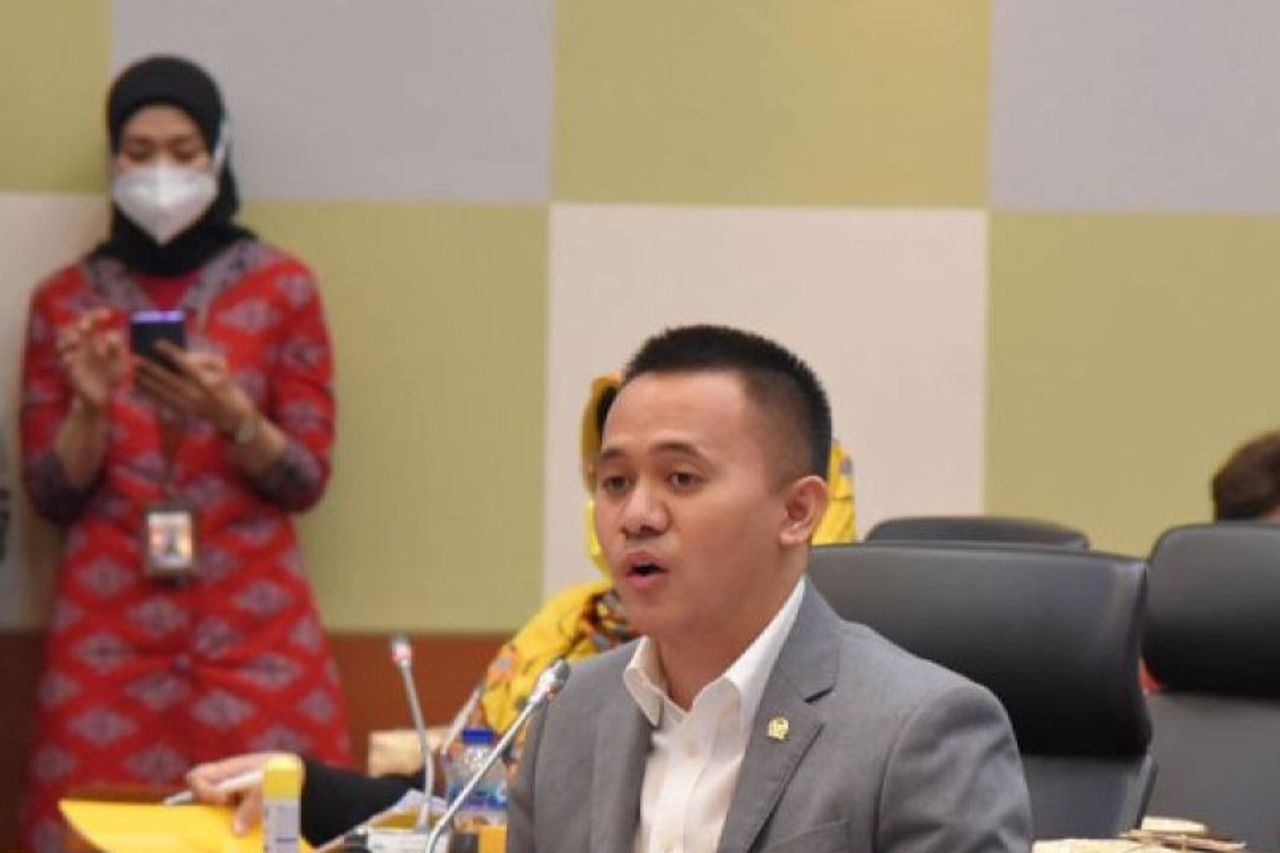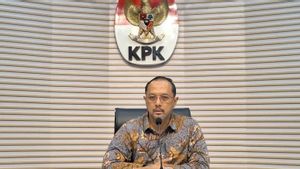DPR Receives Complaints There Are Government Personnel Instructing Factories To Use Imported Milk

JAKARTA - Member of Commission VI DPR RI, Mufti Anam highlighted the action of dairy cow breeders who threw away milk from their production because they were not absorbed by the Milk Processing Industry (IPS) and suffered losses.
Mufti admitted that he received complaints from the public regarding the existence of government personnel who instructed companies or factories to choose to use imported cow's milk.
"The government needs to prioritize our local breeders, not until later because there is an import of milk whose goal is to be sufficient for the nutritious program proposed by the government but will actually sacrifice local breeders," said Mufti Anam, to reporters, Saturday, November 16.
As is known, dairy milk farmers in various regions launched protests by bathing in milk to throwing away dairy milk for free because the industry was accused of preferring to use imported milk. One of them occurred in Pasuruan, East Java, which is the electoral district (Dapil) of Mufti.
Mufti recounted that there were complaints from cow's milk farmers in Pasuruan that they felt they were being lied to. The factory initially admitted that it was not operating because there was an improvement and stopped producing milk so it did not absorb fresh milk from local breeders.
After being investigated, according to farmers, the factory is actually still operating but uses imported milk. When found out more, said Mufti, there were allegations of involvement of government personnel in accommodating imported milk.
"In fact, he said there were instructions from government officials for how they (factories) could absorb milk from this import," he said.
Mufti considers that the issue of local cow's milk that is not absorbed is due to lack of government control. The reason is, the government opens the tap for milk imports at large and there is no tax for milk from abroad.
Exporters to Indonesia such as New Zealand and Australia take advantage of the free trade agreement (FTA) so that the price of imported milk is 5 percent cheaper than local milk.
In fact, through the Regulation of the Minister of Agriculture Number 33 of 2018, the Government has actually set an obligation for dairy processing companies to cooperate with cooperatives of people's breeders to absorb dairy cow's milk.
However, said Mufti, the facts on the ground show that companies that have partnerships with local breeders are less than 20 percent of the total number of dairy processing business actors.
"In the last few months the demand for milk has been lowered and even recently not sent to the factory. It's a shame that attitude like that, they should be able to sit down together to find the win-win solution," explained Mufti.
SEE ALSO:
The legislator from the East Java II electoral district emphasized that the Government should encourage the empowerment of local breeders compared to the use of imported cow's milk.
Although it has only contributed about 20 percent of the IPS needs, Mufti assesses that the Government can intervene in various ways, including increasing programs that can increase the productivity of local dairy farmers.
"Actually, it is easy for the government to how to absorb the milk of local farmers. What is the role of the Government in empowering these breeders," he said.

